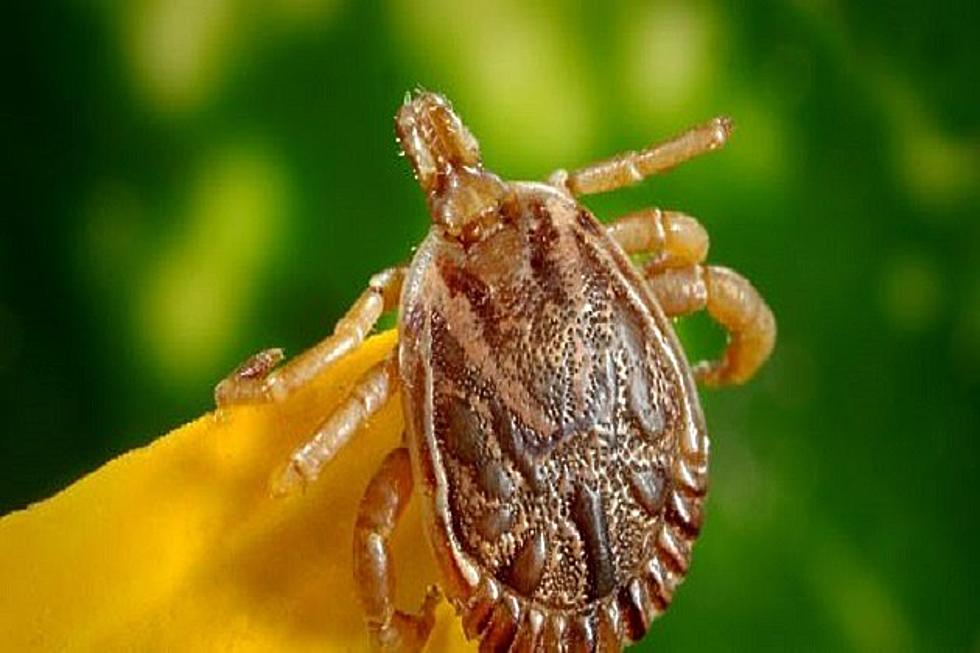
Exotic Tick Found in Hudson Valley for First Time
In a landmark discovery, a tick that comes from Asia, Australia and New Zealand has arrived in the Hudson Valley.
The New York State Departments of Health and Agriculture & Markets confirmed a “longhorned tick” or “bush tick,” was found in the New York State for the first time.
The tick, whose scientific name is Haemaphysalis longicornis tick, is native to Australia, New Zealand and eastern Asian. It was recently found in New Jersey, Virginia, West Virginia, North Carolina, Arkansas and now Westchester County.
"Taking steps to protect yourself, your children and pets against ticks is the best way to prevent tick bites and tickborne diseases," State Health Commissioner Howard Zucker said. "We will continue to conduct surveillance and research on this new type of tick, but it is encouraging that the same steps that protect against deer ticks are also effective against the longhorned tick."
While the longhorned tick has transmitted disease to humans in other parts of the world, more research is needed to determine whether this can happen in the United States, officials say.
In southeast Asia, the longhorned tick has been associated with Rickettsia japonica, thrombocytopenia syndrome virus, Powassan and Huaiyangshan virus hemorrhagic fever, according to the New York State Department of Health.
“It is always better to prevent tick bites whenever possible and to remove ticks as soon as possible, and the discovery of a new tick in our area gives us one more reason to be vigilant in performing tick checks on ourselves, our children and pets,” Westchester County Health Commissioner Sherlita Amler, MD, said in a press release. “Farmers and livestock owners should consult with their veterinarians and continue to use the same preventive measures that work for other ticks.”
The new tick is a major concern to farmers in the area, because it may pose a threat to livestock. The longhorned tick is capable of spreading the cattle disease theileriosis, which leads to anemia and sometimes death in livestock, officials say.
Symptoms of tick-borne disease in cattle include fever, lack of appetite, dehydration, weakness and labored breathing.
Officials advise farmers to work with their veterinarians to check their animals, particularly cattle, sheep and horses, for exposure to ticks.
Tick Prevention Tips:
While hiking, working or spending time in wooded areas:
- Wear long pants and long-sleeved shirts to protect against ticks other biting insects.
- Check for ticks often while outdoors and brush off any ticks before they attach.
- Perform a full body check multiple times during the day, as well as at the end of the day to ensure that no ticks are attached.
- Consider use of repellents containing DEET, picaridin or IR3535, following label instructions.
If you have been bitten by a tick, contact your health care provider immediately if you develop a rash or flu-like symptoms.
It's unclear how the tick arrived in the United States.
- 1 Missing While Swimming in Hudson River, 5 Rescued
- Hudson Valley High School Basketball Standout Killed in Crash
- Exotic Tick Found in Hudson Valley for First Time
- Hudson Valley Camp Counselor Charged With Rape
- Hudson Valley Woman, Former Cop Killed 9 Horses
- Beloved Hudson Valley Pizzeria Owner Killed in 684 Crash
- Likely Rabid Fox on the Loose in Hudson Valley, Many Bit
- 3rd Poughkeepsie Gang Member Charged in Teen's Murder
- Teen Killed in Upper Hudson Valley Crash
- 2 Hudson Valley Officers Jailed For Brutal Inmate Beating
More From Hudson Valley Post









